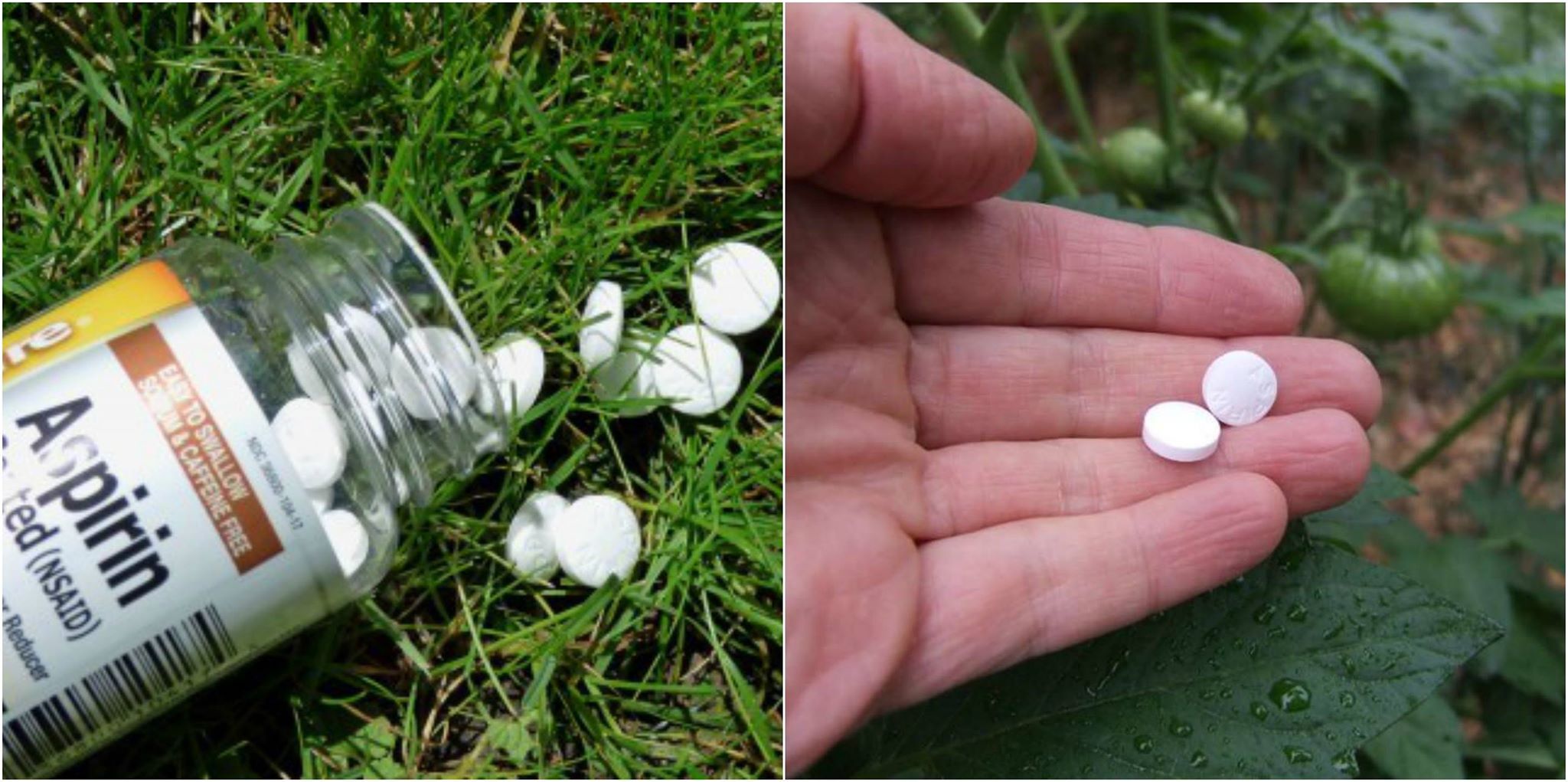Aspirin Uses In The Garden For The Most Productive & Healthy Plants

1. Aspirin helps the cut plants and flowers to last longer
It is possible for your cut flowers to stay fresh longer by adding aspirin to the water in the vase. To accomplish this, pulverize an aspirin tablet, dissolve it in water and add it in the vase.
According to Judy Jernstedt, the professor in plant and soil department at the University of California, Davis, the salicylic acid reduces the production of ethylene. With reduced ethylene present, flower shrinking is deferred, and the cut plants can last more. Additionally, the anti-fungal properties of salicylic acid that disintegrate into the vase slows down the development of mold which can speed up the death of the blossom. For longer enduring new blossoms, make sure to change the water frequently.
2. Propagate plants from cuttings successfully
Rooting hormone helps in propagating plants from cuttings. Take some refined water and dissolve one uncoated aspirin tablet and after that keep the cut end of the plant in this pulling answer for a couple of hours before planting.
Rather than utilizing willow bark, which contains growth hormones, you can utilize aspirin to set up your own rooting solution. It contains the same salicylic acid that is found in willows and works the same.
3. It helps plants fighting fungal diseases
Verticillium and fusarium wilt are normal fungal diseases generally circulated in soil and can wipe out a whole crop in a matter of days. Luckily, as per a current review by the US Department of Agriculture, the utilization of aspirin spray can fundamentally reduce the spread of fungus on the plant. It is additionally useful in blight.
Gardeners can spray their plants with a solution of aspirin tablet mixed in distilled water. The drug is especially effective in warding off diseases in the nightshade family which include tomatoes or potatoes. You can also soak the seeds in the aspirin solution just before sowing to improve germination.
4. It increases the growth and productivity of plants
At the University of Rhode Island, gardeners made a solution containing 4 scrushed aspirin tablets and 4 gallons of water and after that they sprayed that solution on their vegetable gardens at regular intervals (every three weeks) all through the growing season. Toward the finish of the season, they found that the treated plants developed more rapidly and were more productive than the ones that were left untreated.They concluded that aspirin leads to increased vitamin C content and more noteworthy growth in plants.
The salicylic acid improves the the immune system of plants particularly those in the nightshade family. Plants subjected to it actually get help in battling with pests and bacteria. This acid also prevents the development of fungus.
Word of caution
You should be careful when using aspirin in the garden as too much can burn or damage the plants. Improper use may lead to the development of brown spots that makes them appear to have burnt foliage. This guide on how to properly use aspirin in the garden can help prevent any damage to the plants.
- The correct amount of aspirin should not be more then one tablet per 1 liter of water. Start by crushing the tablet well and make sure it is well dissolved before spraying. It may be best to use distilled water.
- The best time to spray the plants is in the morning.
- You should likewise focus on the reaction of the plants to the treatment as not all plants are appropriate for aspirin treatment. Plants in the nightshade family, obviously, for example, tomatoes, peppers, potatoes and eggplants react extraordinarily from this aspirin treatment.


